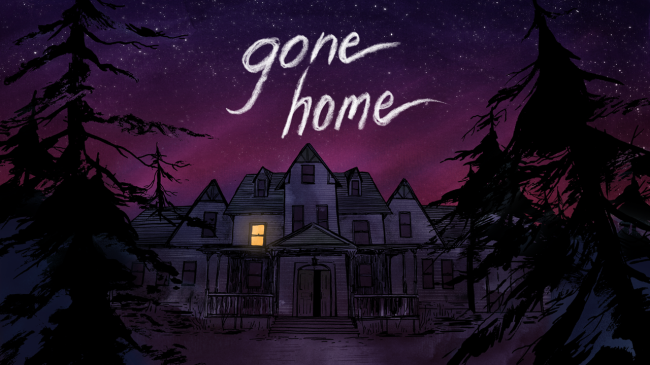 I awoke in my bedroom shortly after five, the palpable melancholy of Gone Home still fogging my mind. Though the simple narrative has its highs and lows, the net sum lingers like a loss. No game I’ve ever played has struck so strong an emotional chord, or played a dirge quite so beautifully. Spoiler alert: I wept.
I awoke in my bedroom shortly after five, the palpable melancholy of Gone Home still fogging my mind. Though the simple narrative has its highs and lows, the net sum lingers like a loss. No game I’ve ever played has struck so strong an emotional chord, or played a dirge quite so beautifully. Spoiler alert: I wept.
But not for the reason you might expect, reading the premise. “You arrive home after a year abroad. You expect your family to greet you, but the house is empty. Something’s not right. Where is everyone? And what’s happened here?” Ideally, that’s all you should read before playing the game, which was recently released on PS4.
Like Dear Esther with a terrestrial dash of Metroid Prime, Gone Home is a game of exploration and quiet contemplation, though in every nook and cranny you’ll find vibrant artifacts of vanished lives: letters, bills, ticket stubs, and secret confessions. The thrust of the narrative is delivered via audio diary entries — movingly read by actress Sarah Robertson. As you roam the ominous Greenbriar estate, you begin to piece together a disquieting quilt of emotional isolation, the threads of which lead to the resolution of the game’s central mystery. The documents left behind, however implausibly, are haunting in the bittersweet triumphs, failures, and frustrations they express. Adding to the ambience as you explore, sheets of rain buffet the facade of the house, and thunder rolls down the lifeless halls.
The house, like the Greenbriers themselves, has its share of secrets. Hidden passageways snake between floors, unwittingly connecting generations of family history. Though most of the house can be explored in any order, several areas remain inaccessible without a key — the further you progress, the clearer and more satisfying the overall portrait becomes. Without giving anything away, I would posit that the year’s best character writing is here, even if the characters are not.
Still, Gone Home is destined to find detractors. Be advised that “gameplay” is limited to movement and interaction with specific objects, and those with more stringent definitions of what constitutes a “video game” may find themselves bored. Even if you are invested, the sheer number of rooms and objects to repetitively investigate can be daunting. And then there’s the L word — that’s right, Length. I played through the story in around three hours, and though the experience was far from technically perfect, the core experience is too powerful to write off.
Conceptually brilliant yet never conventionally “fun,” Gone Home is yet another talking point in the games-as-art debate that packs an unexpected emotional wallop. For gamers fatigued by cover systems and camping, developer The Fullbright Company offers a welcome respite in an eerie and unfamiliar place. You may finish Gone Home in a single sitting, but its restlessly melancholy tale of love and loss will be with you for many nights and early mornings to come.